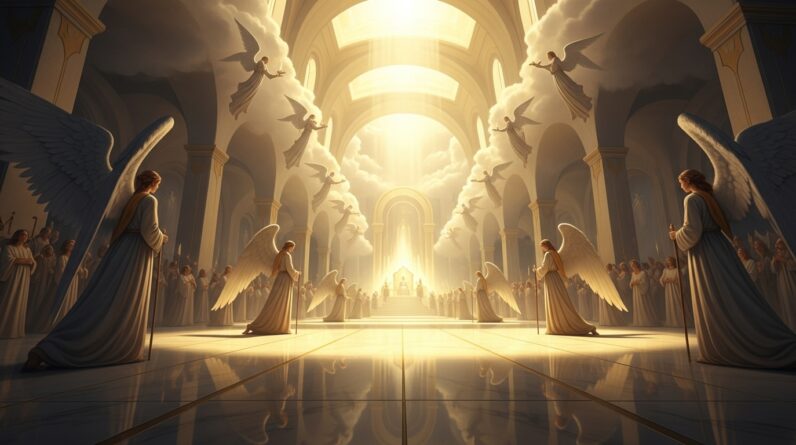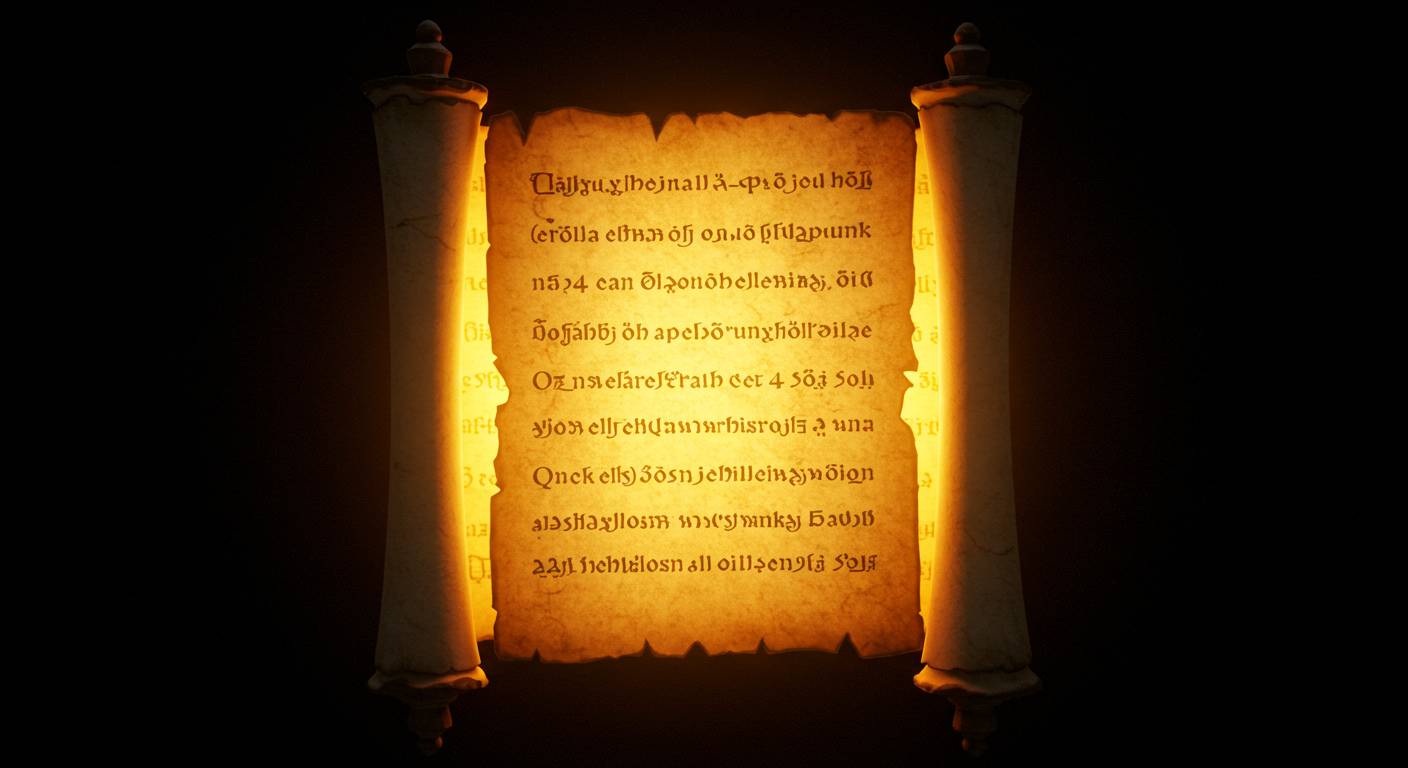Explore the profound imagery of Revelation 6:9 in “The Souls Under The Altar.” A thought-provoking dive into justice, faith, and God’s promise in turbulent times.
The Souls Under The Altar: Voices Crying For Justice — Revelation 6:9

Introduction: Setting the Scene
In the mysterious and often bewildering world of Revelation, we encounter scenes filled with vibrant imagery and profound messages. Among these captivating visions, we find Revelation 6:9, which opens a doorway into a deeply evocative and significant tableau. Here, we are introduced to the poignant theme of justice through the image of souls under an altar, crying out to God for vindication. Read Revelation 6:9 here.
This vision not only paints a vivid picture of spiritual truths but also calls into question the nature of justice, suffering, and the divine response to human pleas. It touches at the heart of the human condition, interweaving personal experiences of injustice with the cosmic narrative of redemption.
The unveiling of this vision bears relevance not only in the immediate context of the Apocalypse but also serves as an enduring promise to believers throughout history. It is an anchor in the storm of uncertainty, reminding us that the cries for justice do not fall on deaf ears.
Why It Matters: The Significance of the Vision
To fully grasp why this vision matters, one must understand both its immediate impact within the Book of Revelation and its broader implications for us. At its core, this vision is about justice—an innate yearning within every soul for things to be set right. The ‘souls under the altar’ symbolize a powerful message: that God hears the cries of the oppressed and will not leave them unanswered.
In our world, where injustice often prevails and wrongs go unpunished, this vision reassures believers that divine justice will ultimately prevail. It speaks to every person who has ever felt wronged, reminding them that their cries for justice are sacred and heeded by God.
Moreover, the vision captures the paradox of faith—living in the tension between the now and the not yet. It calls believers to live with hope, knowing that God’s justice is both immediate and future, visible and yet to be fully revealed.
Exploring the Vision in Depth
Summary of Key Symbols
The imagery of Revelation 6:9 is rich and complex, inviting us into a deeper understanding of spiritual realities through its symbols. The souls under the altar are at the center of this vision, representing those who have suffered persecution for their faith. This altar is not just a literal place of sacrifice but a metaphorical representation of divine justice, safety, and sanctity.
The ‘crying out’ symbolizes the longing for justice and righteousness, echoing the persistent human cry against oppression and suffering. It resembles the heartfelt prayers of individuals throughout the ages asking, “How long, O Lord?”
Each element—the altar, the souls, the cries—carries layers of meaning, inviting reflection and offering new perspectives on familiar struggles. They speak of sacrifice, enduring faith, and the ultimate fulfillment of divine promises.
Contextual Background
To fully appreciate the vision’s depth, it is crucial to place it in its historical and theological context. Revelation was written during a time of persecution for early Christians, offering hope and assurance in the face of hostility. The image of the altar calls back to the temple practices of the Old Testament, where sacrifices took place, symbolizing a connection between divine justice and human experience.
Furthermore, this vision parallels other biblical themes, such as the martyrs’ cries in the Old Testament and Jesus’ teachings on justice and faithfulness. It ties in with the overarching narrative of the Bible—God’s redemptive plan in response to sin and suffering.
Interpretation: Unpacking the Vision
When you piece together the vision’s elements, a powerful interpretation emerges. The souls beneath the altar are the martyrs—those who have paid the ultimate price for their faith. Their presence signifies the sanctity of their sacrifice and the certainty of coming justice. The altar itself embodies God’s knowledge and acknowledgment of human suffering.
In a world often marked by injustice, this vision communicates more than comfort; it’s a promise that God will address every wrong. The cries of the souls highlight divine patience in unfolding justice, where time does not lessen its certainty or urgency.
The vision is Revelation’s statement of faith: past suffering has meaning, and future vindication is promised. It calls believers to an enduring hope rooted in God’s unwavering commitment to justice.
Relevance for Today’s Readers
Spiritual Insight
Reading Revelation 6:9 can be a source of spiritual encouragement, offering insight into our own lives as we navigate personal challenges and injustices. It speaks to the timeless human experience of suffering for one’s conviction, echoing the invisible struggles countless individuals face daily.
The vision reminds us that God values our cries and ensures they resonate in eternity. It strengthens the resolve to persevere, instilling a trust that divine justice will indeed arrive in its time.
Application in Daily Life
In our day-to-day lives, this vision translates into a call for patient endurance. It encourages you to remain steadfast in faith, trust in God’s timing, and act with compassion and integrity, knowing that justice is forthcoming. Whether dealing with personal grievances or broader societal injustices, you are called to be an active participant in God’s unfolding plan, trusting in His ultimate authority.
Moreover, you can reflect on the vision to find peace in uncertainty, to rest assured that wrongs will eventually be righted, and to allow this assurance to shape your actions and interactions with others.
Supporting Verses and Cross-References
To expand on this message, drawing from other biblical texts can enrich your understanding and offer more comprehensive insight. For instance, consider Ephesians 6:12: “For our struggle is not against flesh and blood but against … spiritual forces of evil.” This provides further context to the fights we face, reminding us that the battles are not merely physical but deeply spiritual.
You might also reflect on Psalms 37:28: “For the LORD loves the just and will not forsake his faithful ones,” which resonates with the theme of divine justice and faithfulness.
By connecting Revelation 6:9 with these themes, you can appreciate the thoroughness of the biblical narrative, binding together motifs of suffering, justice, and redemption.
Conclusion: Reflection on the Vision’s Message
The souls under the altar compel you to remember that God’s justice, though delayed, is inevitable and provided. This vision shouldn’t just comfort you but galvanize you toward courage and advocacy for what is right in your environment.
The promise of heading towards a day where justice will roll down like waters (Amos 5:24) serves as both a comfort and a challenge. It calls you to stand firm in faith, assured in God’s promises, and engaged actively in bringing justice here and now.
As you meditate on Revelation 6:9, may its enduring promise inspire confidence and a renewed commitment to an active, justice-oriented faith. Let it continue to influence your life, instilling both personal peace and communal action.







